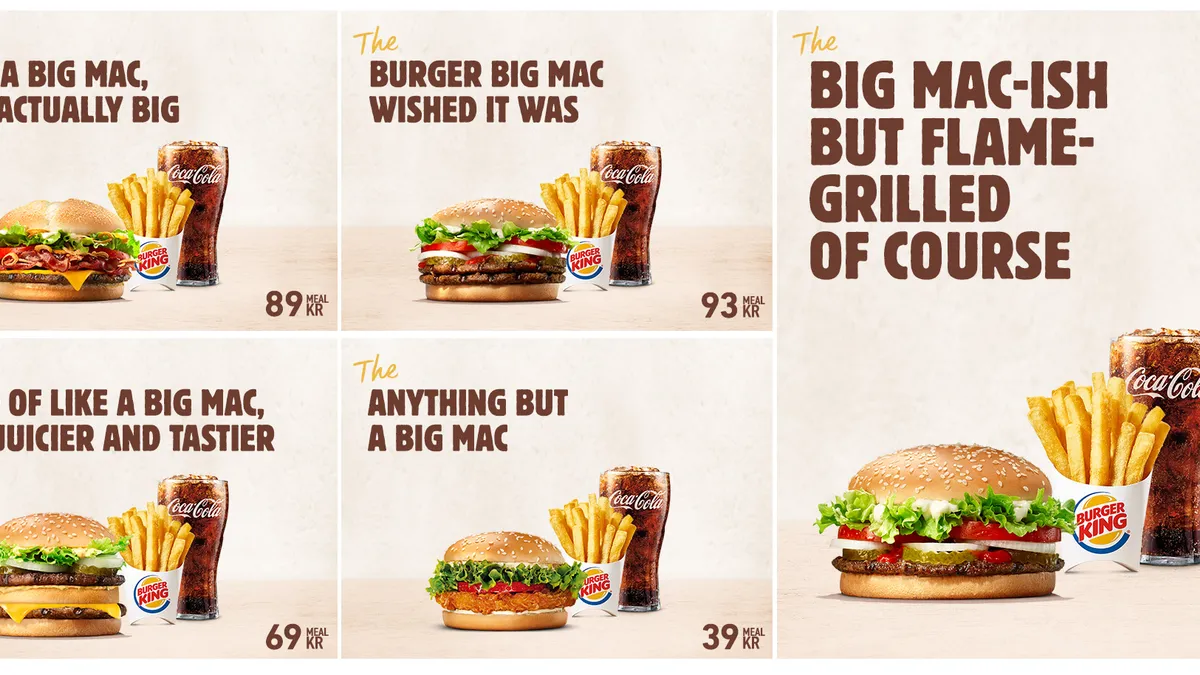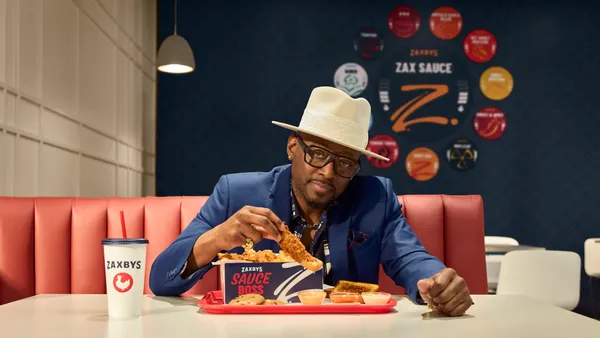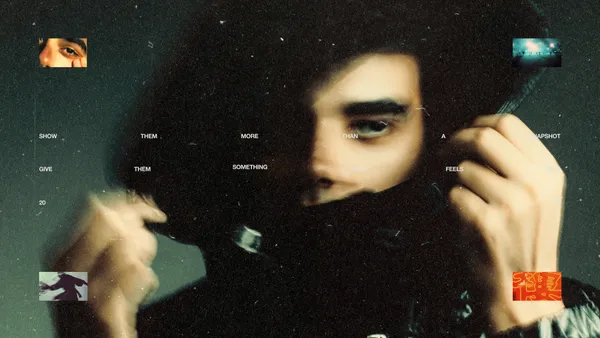Dive Brief:
- Burger King unveiled a new line of fast-food menu items called "Not Big Macs" for a limited time at locations in Sweden, according to a press release shared with Marketing Dive. The campaign is in response to rival McDonald's losing its Big Mac trademark in the EU.
- The burgers are regular Burger King products, simply with temporary name changes. The items include "Big Mac-ish but flame-grilled of course," "Like a Big Mac but actually big," "The burger Big Mac wished it was," "Kind of like a Big Mac but juicier and tastier" and "Anything but a Big Mac."
- Burger King released a video on YouTube showing customers ordering from the limited-run menu, which was created by Ingo Stockholm.
Dive Insight:
With "Not Big Macs," Burger King is taking direct jabs at its competitor amid its recent legal defeat against Irish fast food chain Supermac. The EU Intellectual Property Office found in the case that McDonald's had not proven genuine use of the phrase "Big Mac," which the company trademarked in 1996, in the five years leading up to Supermac's filing in 2017, despite McDonald's submitted menus and promotional materials featuring the Big Mac. The ruling opened the doors for copycats to use the Big Mac name in Europe, which Burger King Sweden jumped on for its latest marketing stunt.
Trolling McDonald's seems to be one of Burger King's favorite pastimes of late. The stunt comes on the heels of another recent Burger King campaign, in which the fast-food chain hacked a previous McDonald's marketing effort. To promote its new Big King XL sandwich, Burger King pointed out that the burger has 175% more beef than a Big Mac. Burger King also gave consumers the chance to swap their expired MacCoins for a free Big King XL. McDonald's distributed collectible MacCoin tokens last year for the Big Mac's 50th anniversary, but they caused some confusion with consumers and were no longer redeemable after Dec. 31, 2018.
Burger King also rolled out a "Whopper Detour" stunt in December that used mobile geofencing to direct people away from McDonald's locations. When smartphone users went within 600 feet of most McDonald's brick-and-mortar locations, they were sent a mobile offer for ordering a Burger King Whopper for a penny from the chain's revamped BK App, which then navigated them to the nearest Burger King to pick up their food.
"Hackvertising" — when a brand hijacks another brand's marketing efforts — is becoming a hallmark of Burger King's strategy. The stunts often get media attention and heighten engagement on social media, which help the brand stand out in the competitive fast-food space.














